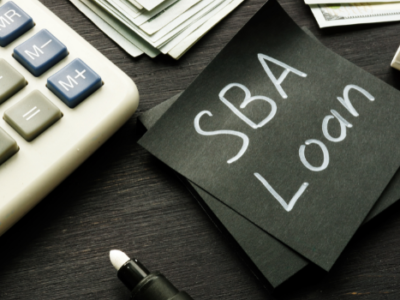SBA Loans in Wake of COVID-19
Part I: What Your Business Needs to Know
April 2, 2020
By Andrew T. Smith
As a consequence of the COVID-19 pandemic, on March 18, 2020, Gov. Kemp announced that Georgia has received an official statewide disaster declaration from the U.S. Small Business Administration (SBA). This declaration will provide assistance in the form of SBA Economic Injury Disaster Loans (EIDL) to impacted small businesses throughout Georgia.
Following this declaration, on March 25, 2020, Congress enacted the Coronavirus Aid, Relief, and Economic Security Act (CARES Act), and President Donald Trump signed the CARES Act into law on March 27, 2020. The CARES Act includes $2 trillion in relief for public health spending, cash relief for individuals, a broad lending program for small businesses, and targeted relief for severely impacted industries.
Both CARES Act and EIDL loans are a critical source of economic stimulation designed to spur employment and stabilize tax bases. These working capital loans may be used to pay fixed debts, payroll, accounts payable, and other expenses to offset the economic casualties of the pandemic. The loans are not intended to replace lost sales or profits or for expansion, nor are they available to be used to refinance long term debts.
SBA Economic Injury Disaster Loans
Through an SBA EIDL, for-profit small businesses may qualify for secured loans up to $2 million, which will be repayable over a thirty (30) year term with an interest rate of 3.75% per annum. EIDLs under the CARES Act do not require personal guarantees for loans up to $200,000, but loans in excess of that amount will require personal guarantees by all owners of more the 20% of the business.
The actual amount of each EIDL loan that SBA will approve is determined by both the extent of the economic injury suffered by the borrower and the borrower’s ability to repay. SBA is also required to consider potential contributions that are available from the business and/or its owner(s) or affiliates to offset its losses. If a business is a major source of employment, SBA has the authority to waive the $2,000,000 statutory limit. The CARES Act also permits EIDL loan applicants to request an advance of up to $10,000 to pay allowable working capital needs; the Act contemplates that SBA will pay the advance within 3 days of the application. The Act does not require this advance to be repaid, even if the application is denied.
Small businesses may apply online using the electronic loan application found at the SBA’s secure website at https://disasterloan.sba.gov/ela/. To apply, an applicant is required to: 1) Complete the SBA Form 5 or 5C Loan Application, 2) Complete the IRS Form 4506T Tax Information Authorization, 3) Submit complete copies of its most recent federal income tax return, 4) Complete the SBA Form 2202 Schedule of Liabilities, and 5) Complete the SBA Form 413 Personal Financial Statement. EIDL loan applications may be filed by Georgia small businesses through December 18, 2020. Due to an overwhelming response, the SBA website has been subject to considerable delays due to high volumes of traffic, and as a result, some business owners are electing to submit applications by mail.
SBA 7(a) expansion & the “Paycheck Protection Program”
The SBA 7(a) Loan Program is the SBA’s primary means for providing financial assistance to small businesses. These loans are issued by a bank with a guaranty from the SBA in the event the borrower defaults. The CARES Act is intended to provide substantial relief for small businesses, including more than $300 billion in Small Business Administration (SBA) loan guaranties, subsidies, and additional funding for SBA programs.
Eligible small businesses (those having 500 or fewer employees) can take advantage of emergency grants and the Paycheck Protection Program (“PPP”), which is a forgivable loan. With certain exceptions, an approved small business borrower will be authorized to borrow 2.5 times its average monthly payroll, not to exceed $10 million. The definition of payroll includes self-employed individuals and certain types of payments made to business owners outside of W-2 wages.
The loans are unsecured, will not require personal guarantees, and payments will be deferred for not less than one year. The proceeds of a PPP loan may be used for (a) payroll, (b) rent, (c) utilities, (d) interest (but not principal) on any mortgage obligation, (e) interest on any other debt obligations that were incurred before February 15, 2020, and (f) any other permitted use of a SBA 7(a) loan, including working capital, plant acquisition, construction, conversion, or expansion, including the acquisition of land, material, supplies and equipment.
The CARES Act provides that these loans will be forgiven to the extent that proceeds are used for employee salaries and wages, group health and insurance premiums, mortgage interest or rent, utilities, and interest on other eligible debts for eight (8) weeks following the origination of the PPP loan. The entire principal amount of the PPP loan is eligible for forgiveness if the proceeds are used for a permitted purpose. The loan repayment terms for any portion that is not forgiven will generally be for 10 years at a maximum interest rate of 4%.
The bottom line
Whichever loan a small business decides to pursue, the SBA’s purpose for each is the same: encourage small businesses to preserve jobs. The loans and assistance programs available to small businesses in response to the COVID-19 pandemic will have varying benefits and eligibility requirements. The attorneys at Flint, Connolly & Walker, LLP are continuing to evaluate and monitor developments as to these loan programs and are ready to assist clients with all of their business needs.
Andrew Smith is an associate attorney with Flint, Connolly & Walker, LLP currently assisting clients in various corporate business and real estate transactional matters. He is experienced in a range of legal issues affecting business owners and is knowledgeable in the various federal relief programs available to small businesses and nonprofits to help sustain operations during the COVID-19 pandemic.

